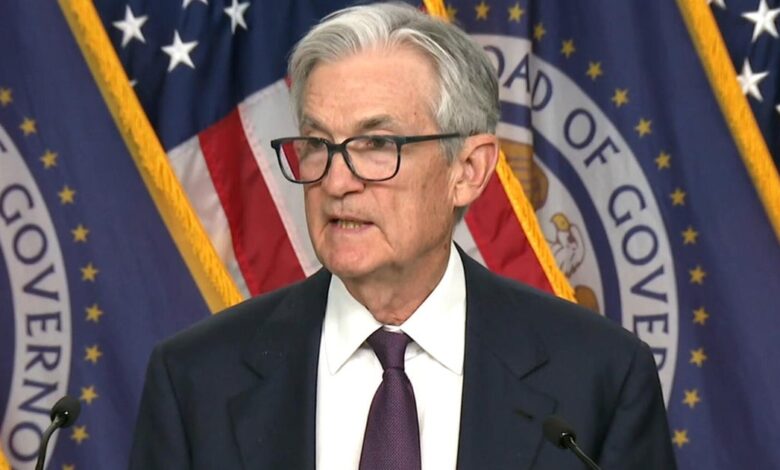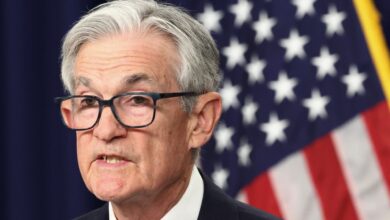Fed chief Jerome Powell warns that U.S. could face “supply shocks”

Federal Reserve Chair Jerome Powell recently issued a warning about the potential for an increase in supply shocks in the United States. This caution comes on the heels of the Federal Reserve’s decision to keep interest rates unchanged amidst economic uncertainty. Powell, speaking at a conference in Washington, D.C., highlighted the challenges that frequent and persistent supply shocks could pose to the economy and central banks.
Analysts have also raised concerns about possible inventory shortages for U.S. companies due to supply chain disruptions caused by tariffs. Flexport, a supply chain management company, reported a significant drop in container bookings from China to the U.S. following a spike in imports before the tariffs were imposed.
Powell acknowledged that the economic landscape has shifted since the Fed’s last strategy meeting in 2020, with interest rates now higher than they were at that time. The current federal funds rate ranges between 4.25% and 4.50%, and the Fed opted to maintain this rate steady at its recent meeting. The central bank is expected to continue monitoring the economic risks associated with the Trump administration’s tariff policies at its upcoming meeting in June.
In addition to supply shocks, Powell also expressed concerns about the potential for increased inflation volatility due to higher real rates. Although inflation has slightly eased in recent months, it remains above the Fed’s target rate of 2%. The ongoing economic uncertainty stemming from tariff policies has left American consumers and businesses grappling with challenges.
President Trump’s negotiations with foreign leaders, such as the recent discussions with India regarding tariff eliminations, have offered some hope for resolution. Trade deals with the U.K. and China have also provided a boost to the stock market. However, analysts caution that high tariffs are likely to persist in the near future despite these recent developments.
In conclusion, Powell’s warning about supply shocks and inflation volatility underscores the need for vigilance in navigating the current economic environment. As uncertainties surrounding tariffs and trade agreements persist, businesses and policymakers must remain adaptable and prepared to address potential challenges.





